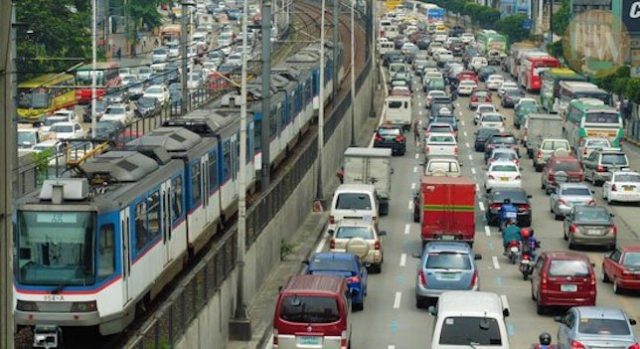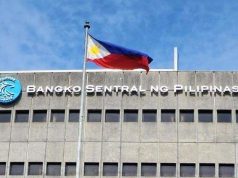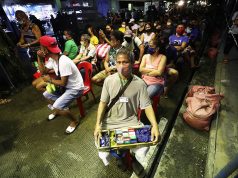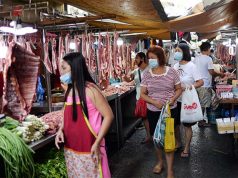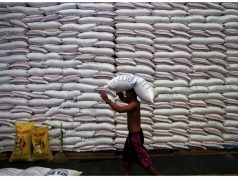MANILA – Independent research group IBON has assailed what it described as the administration’s tendency to persistently play down certain increases in the prices of goods and services.
IBON’s Executive Director Sonny Africa said “this is dishonest and insensitive to the burden that the Tax Reform for Acceleration and Inclusion (TRAIN) imposes on the poor to avoid higher taxes on the rich.”
He maintained that the Duterte administration’s TRAIN law which took effect at the start of the year will increase prices, and possibly even dampen economic growth.
The Department of Trade and Industry (DTI), Department of Finance (DOF), Bangko Sentral ng Pilipinas (BSP), and National Economic and Development Authority (NEDA) have all understated the impact of TRAIN on the prices of goods and services, noted IBON on Monday.
The DTI said the effect on prices of prime commodities would be very small or minimal. The DOF insists that inflation will remain manageable in 2018. For the same period the BSP forecasts that inflation will just be at 3.4 percent. NEDA, meanwhile, has declared that inflation will be stable despite TRAIN.
The orchestrated statements are meant to diffuse justified criticism of the anti-poor and pro-rich tax reform, Africa said. “The additional petroleum product excise taxes, for instance, cannot but have a domino effect on the prices of basic commodities and other goods and services”, he said. He added that TRAIN proponents correctly point out how petroleum excise taxes were last raised over two decades ago. “They should also highlight how this was very inflationary,” said Africa.
Republic Act (RA) 8184 of 1996 increased taxes on gasoline by P1.83-2.83 per liter, diesel by P1.18, and kerosene by P0.10, among other oil products. “This was certainly a factor in driving inflation up from 8.0% in 1995 to 9.1% in 1996.”, said Africa. Similarly, RA 9337 of 2005 expanded the coverage of the value-added tax (VAT) to include petroleum products. Despite excise taxes on diesel and kerosene being taken away, inflation rose from 6.0% in 2004 to 7.6% in 2005.
The higher oil taxes also likely contributed to dampening economic growth as one major factor among many factors underlying economic growth rates, according to Africa. Growth in gross domestic product (GDP) slowed from 5.8% in 1996 to 5.2% in 1997, combining with the Asian financial crisis in the latter part of the year. Growth also moderated from 6.7% in 2004 to 4.8% in 2005 and 5.2% in 2006.
Africa pointed out that oil excise tax increases under TRAIN are, however, much higher than before. From current levels,
• the tax on gasoline will increase by P2.65 per liter in 2018, P4.65 in 2019, and P5.65 in 2020;
• the tax on diesel, by P2.50, P4.50, and P6; and
• on kerosene, by P3, P4, and P5.
“There is even a new tax on LPG of P1 per kilogram in 2018, P2 in 2019, and P3 in 2020. Administration economic managers are then being dishonest in being dismissive about the inflationary impact of TRAIN,” Africa said.
“They are also being insensitive,” said Africa. “The administration’s economic managers and other TRAIN proponents should stop harping on the windfall from personal income tax cuts of, at most, six to seven million taxpayers. It’s about time for them to become more transparent and upfront about the negative impact of TRAIN on the poorest 15 million Filipino families. These are tens of millions of Filipinos who do not get any personal income tax cuts but will pay higher prices for the goods and services they consume from already very low incomes,” he stressed.
Africa also said the government’s harping on the cash transfers for the country’s poorest families is an indirect admission that the TRAIN’s taxes do put an additional burden on them. “But these transfers are only temporary for the first three years while even higher taxes are imposed.”
According to Africa, the relief ends after the third year but the greater TRAIN tax burdens are permanent.

